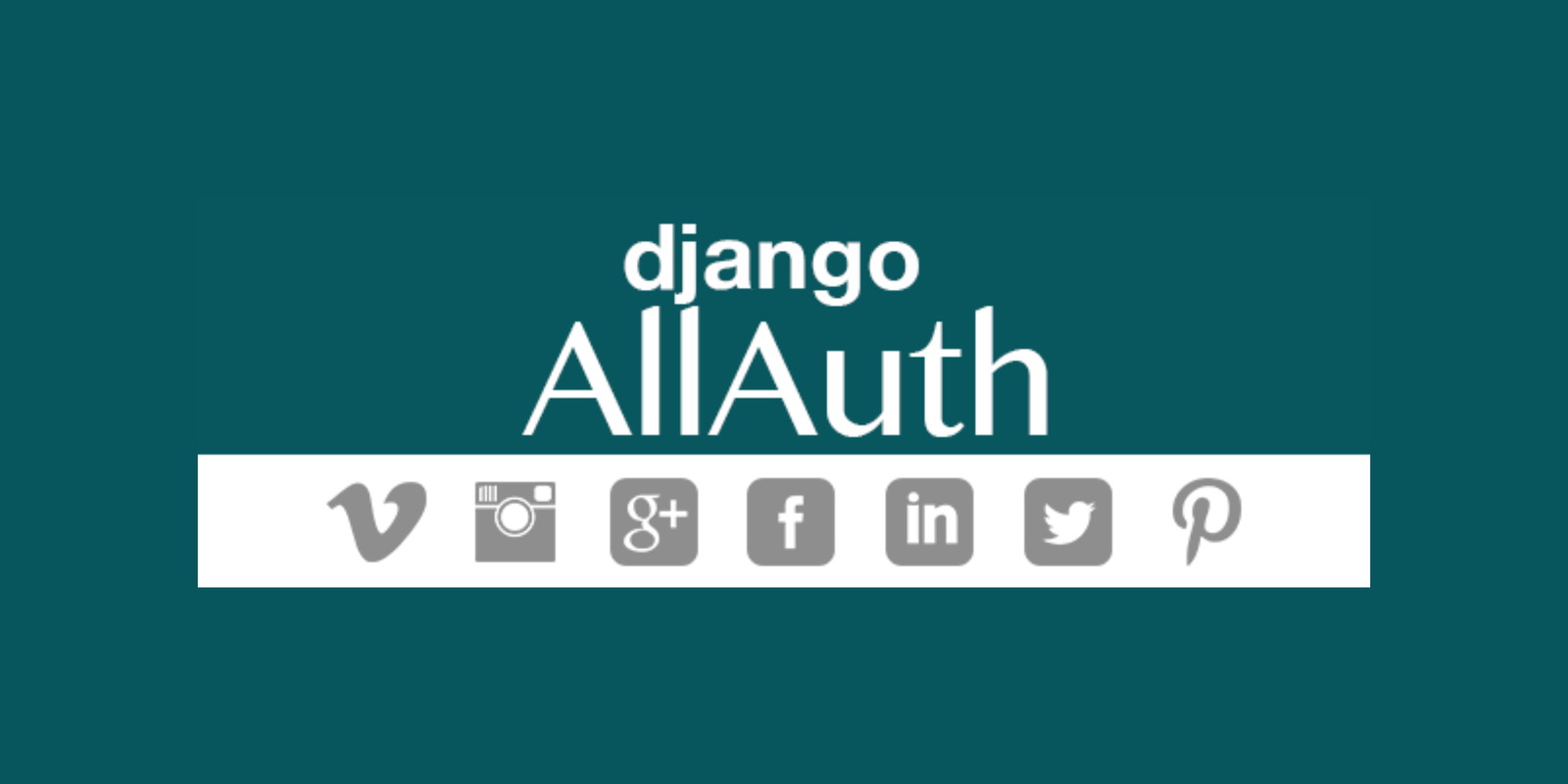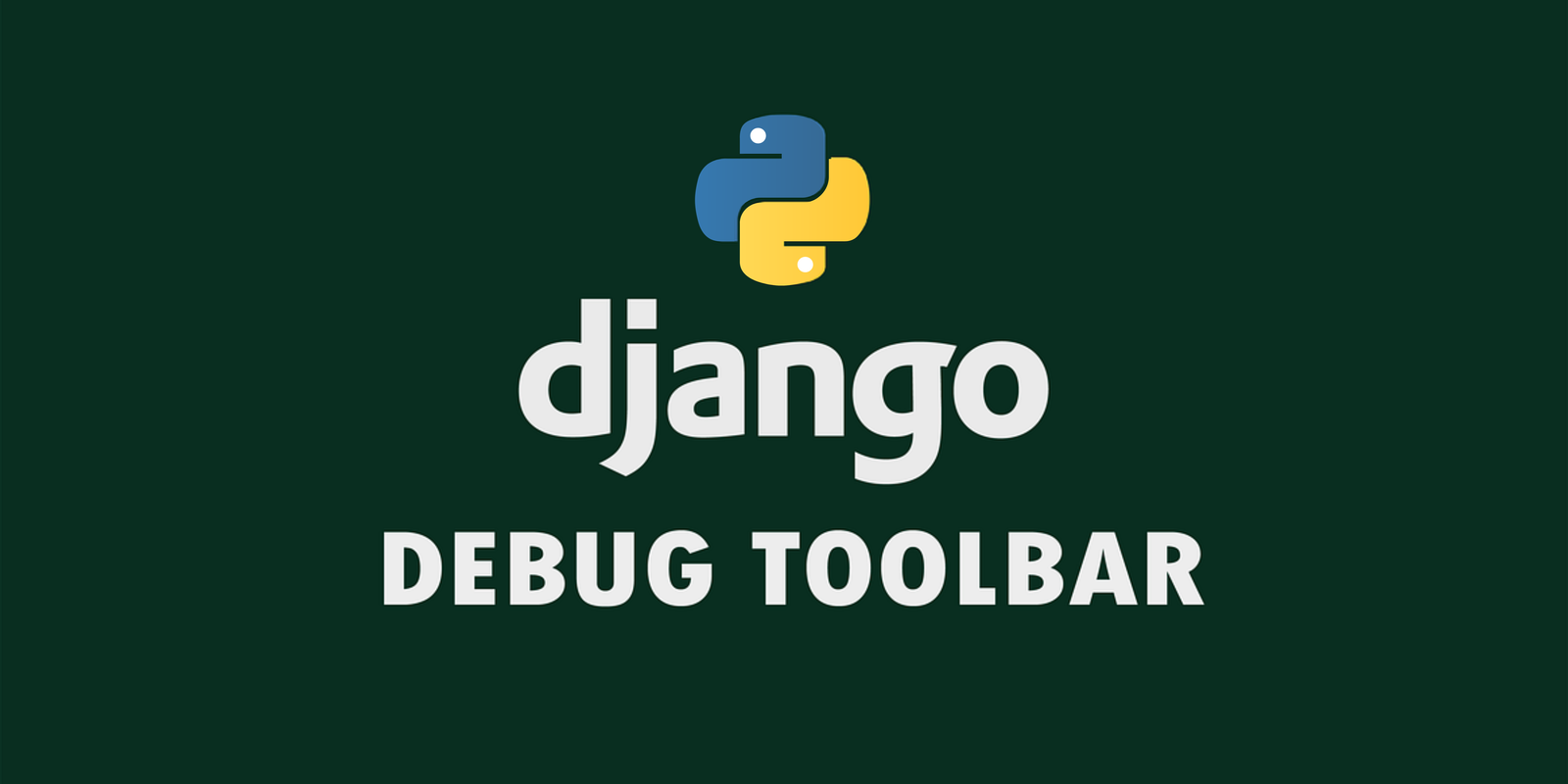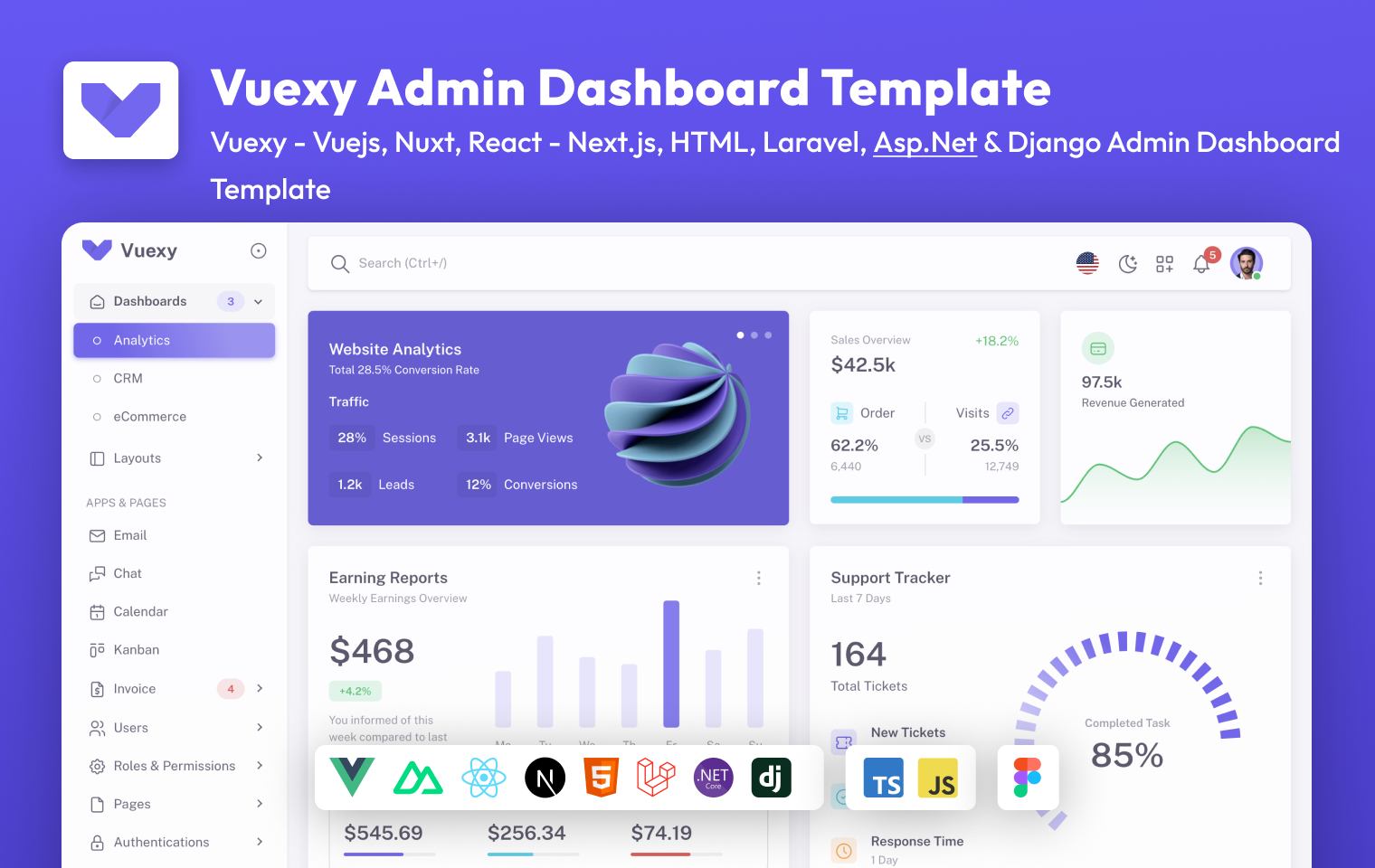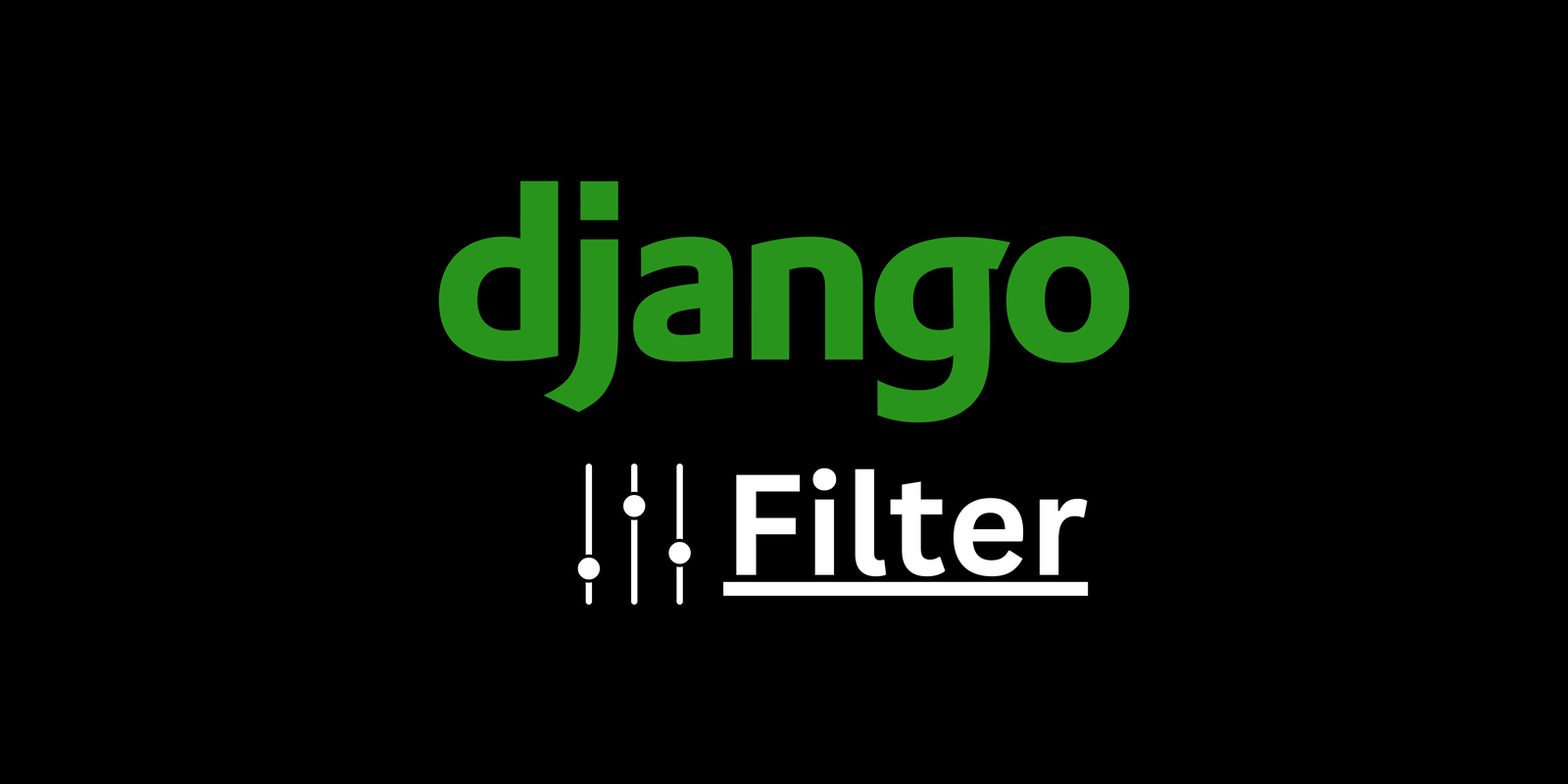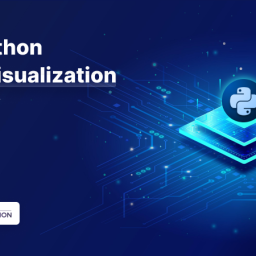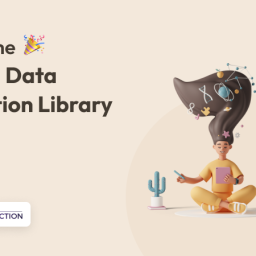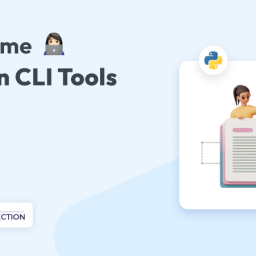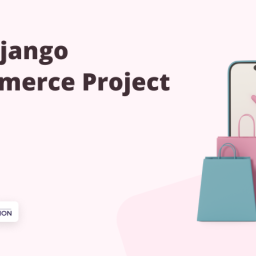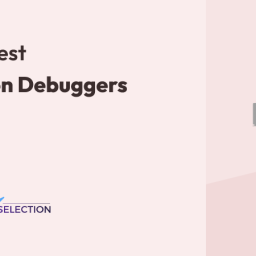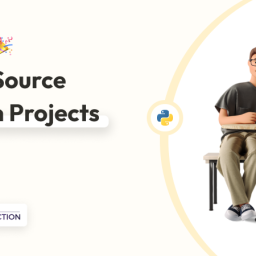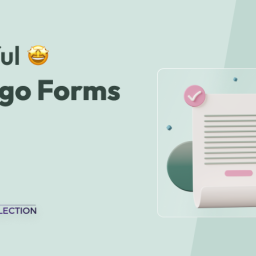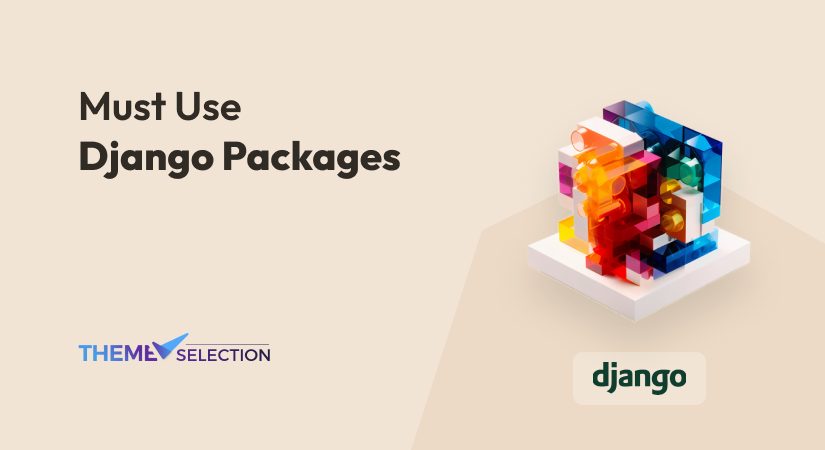
Looking for the best Django Packages List? Then you are definitely at the right place. Rest your search for the Django packages library & check out the best one that we have collected here.
Table of contents
What Is Django?
Django is a super cool web framework for building web applications with Python. It’s like a magical toolbox that simplifies the process of creating websites, allowing you to focus on the fun parts instead of getting bogged down by the nitty-gritty details. It comes with a bunch of pre-built tools and features that make web development a breeze.
With Django, you can quickly set up a database, handle user authentication, manage URL routing, and create dynamic web pages with ease. It follows the Model-View-Controller (MVC) architectural pattern, which means you can neatly organize your code and separate your data, logic, and presentation layers.
Django also has a friendly and supportive community, so if you ever get stuck or need help, there are plenty of resources and fellow developers ready to lend a hand. Whether you’re a beginner or an experienced developer, Django is a fantastic choice for building awesome web applications without tearing your hair out.
Features:
- DRY principle for clean and concise code.
- ORM layer for simplified database operations.
- Built-in user authentication and authorization.
- Powerful URL routing system.
- Templating engine for dynamic web pages.
- Automatic admin interface generation.
- Internationalization and localization support.
- Robust security features.
- Caching mechanisms for performance optimization.
- Scalable architecture.
- Active and supportive community
Advantages:
- Rapid development and increased productivity.
- Modular and reusable code.
- Built-in security features.
- Scalable and high-performance.
- Comprehensive documentation and active community support.
- Follows best practices and encourages clean code.
- Integration with various databases.
- Simplified URL routing and view handling.
- Automatic admin interface generation.
- Extensive third-party package ecosystem.
- Internationalization and localization support.
- Caching mechanisms for improved performance.
In this article on the Django packages list, we will explore the best packages for django in detail.
What Are Django Packages and What Do They Do?
Django Packages is a comprehensive directory and repository of reusable Django apps, packages, and libraries created by the Django community. It serves as a valuable resource for developers looking to enhance their Django projects with additional functionalities and features.
Besides, Django Packages libraries offer a wide range of pre-built solutions that can save developers time and effort. These packages cover various aspects of web development, including authentication, user management, API integration, data manipulation, form handling, and much more. By leveraging these packages, developers can avoid reinventing the wheel and instead focus on the unique aspects of their projects.
Overall, Django Packages acts as a collaborative platform that fosters knowledge sharing and accelerates Django project development by providing a curated collection of reusable components. Here you will get the best Django packages list. Also, make sure you have Cross Browser testing tools to make sure your project works well.
Advantages:
- Access to a wide range of pre-built Django apps and libraries.
- Saves development time by leveraging existing solutions.
- Enhances project functionality without starting from scratch.
- Simplifies integration of additional features and functionalities.
- Reduces potential bugs and errors through community-tested packages.
- Provides documentation and support for easy implementation.
- Encourages collaboration and knowledge sharing within the Django community.
- Enables developers to contribute their own packages and expand the ecosystem.
Parameters To Consider While Choosing The Right Django Package Library:
Following are some of the parameters that you should consider while picking the right Django package library:
- Compatibility with your Django version
- Comprehensive and up-to-date documentation
- Active community support
- Quality & licence
- Popularity and positive reputation
- Strong security practices
- Customization and flexibility for your use case
- Performance optimization
- Suitable licensing
- Active development and updates
- Minimal and compatible dependencies
Now let’s explore the Django packages list.

Top Django Packages Library:
Many Python packages can be added to any project. However, there are some packages that are essential for every Django web app. These packages are beneficial and time-saving, so we will focus on them. We will also explain how to install and configure them.
While some Python packages offer cool functionality that is only needed for one specific project, the packages discussed below are the foundation of the Django project development. You can also consider using the Django Admin Panel for your upcoming projects.
Now, let’s start the Django Packages List.
Django REST Framework (DRF)
Django REST framework (DRF) is a powerful and flexible toolkit for building Web APIs. Its main benefit is that it makes serialization much easier. Besides, the Django REST framework is based on Django’s class-based views, so it’s an excellent option if you’re familiar with Django.
With DRF, you can define API endpoints as Django views, map them to URL patterns, and easily serialize data to different formats like JSON or XML. Furthermore, it supports various authentication methods like token authentication and OAuth and allows you to set fine-grained permissions to control access to your API.
Additionally, whether you’re building a simple API or a complex web service, this Django package will help you create robust and scalable APIs with Django easily.
Prerequisites:
- Python
- Pip
- Django
Django is a high-level Python web framework that provides a complete set of tools for building web applications. Whereas Django Rest Framework (DRF) is an extension of Django specifically designed for building web APIs. It adds additional functionality and tools to Django, such as serializers, authentication, permissions, and API view routing, making creating RESTful APIs with Django easier. In summary, Django is a general-purpose web framework, while DRF is a specialized toolkit for building APIs on top of Django.
Reasons To Use Django REST Framework
It provides a set of utilities and features that simplify the process of creating RESTful APIs with Django. Furthermore, DRF helps you handle common tasks such as serialization, authentication, permissions, and view routing, so you can focus more on building your API’s logic and functionality.
Apart from that, the following are some of the features that make it one of the best packages from this Django packages list.
- The Web browsable API is a huge usability win for your developers.
- Supports pagination, filtering, and sorting of API results.
- Authentication policies including packages for OAuth1a and OAuth2.
- Includes automatic documentation generation.
- Serialization that supports both ORM and non-ORM data sources.
- Customizable all the way down – just use regular function-based views if you don’t need the more powerful features.
- Extensive documentation, and excellent community support.
- Provides utilities and features for handling common API tasks.
- Used and trusted by internationally recognized companies including Mozilla, Red Hat, Heroku, and Eventbrite.
Django Rest Framework (DRF) works by leveraging the functionality of Django to simplify the creation of web APIs. It provides a set of classes and tools that allow developers to define API endpoints, handle requests and responses, serialize data, and manage authentication and permissions.
DRF maps incoming requests to the appropriate view function or class, performs data serialization/deserialization, applies authentication and permission checks, and generates a corresponding response, making it easier to build robust and scalable APIs with Django.
How to install Django Rest Framework?
- Run a simple command
pip install djangorestframework- Or Install DRF with source code directly. Install the git command line utility & then run:
git clone https://github.com/encode/django-rest-framework- Add rest_framework to INSTALLED_APPS
INSTALLED_APPS =
(
'django.contrib.admin',
'django.contrib.auth',
'django.contrib.contenttypes',
'django.contrib.sessions',
'django.contrib.messages',
'django.contrib.staticfiles',
'rest_framework'
)Cookiecutter Django
The next one from this Django packages list is Cookiecutter. Cookiecutter Django is a powerful and widely used tool for scaffolding Django projects. Leveraging the capabilities of Cookiecutter, it provides a standardized and efficient approach to setting up Django applications.
With Cookiecutter Django, developers can easily generate a well-organized project structure that adheres to best practices and includes essential files and configurations. By automating the initial project setup, Cookiecutter Django allows developers to save valuable time and effort, enabling them to focus on developing their Django applications promptly and efficiently.
Prerequisites:
- Docker; if you don’t have it yet, follow the installation instructions;
- Docker Compose; refer to the official documentation for the installation guide.
- Pre-commit; refer to the official documentation for the pre-commit.
- Cookiecutter; refer to the official GitHub repository of Cookiecutter
Reasons To Consider CoockieCutter
Cookiecutter Django’s strength lies in its ability to streamline the project initialization process. It offers a flexible and customizable template that can be tailored to specific project requirements.
The template includes pre-configured settings, authentication mechanisms, database connections, and other common functionalities, ensuring a solid foundation for Django projects.
- For Django 4.1
- Works with Python 3.11
- Renders Django projects with 100% starting test coverage
- Twitter Bootstrap v5, (Consider using Bootstrap Admin Template for Bootstrap projects)
- 12-Factor-based settings via django-environ
- Secure by default. We believe in SSL.
- Optimized development and production settings
- Registration via django-allauth
- Send emails via Anymail
- Docker support using docker-compose for development and production (using Traefik with LetsEncrypt support)
– Run $ pip install "cookiecutter>=1.7.0"
– Run: $ cookiecutter https://github.com/cookiecutter/cookiecutter-django
Sneat Bootstrap 5 Django Admin Template (Brand New Django Admin Template)
Sneat Bootstrap 5 Django Admin Template – is the latest Django 5 Admin Template. It is the most developer-friendly & highly customizable Django dashboard. Besides, the highest industry standards are considered to bring you the best Django admin dashboard template that is not just fast and easy to use, but highly scalable.
In addition, it is incredibly versatile and very suitable for your project. Besides, this bootstrap-based Django admin Template also allows you to build any type of web app with ease. For instance, you can create: SaaS platforms, Project management apps, E-commerce backends, CRM systems, Analytics apps, Banking apps, etc.
Furthermore, you can also use this innovative admin panel template to create eye-catching, high-quality, and high-performing Web Applications. Besides, your apps will be completely responsive, ensuring they look stunning and function flawlessly on desktops, tablets, and mobile devices.
Features:
- Built with Django 5
- Using CSS Framework Bootstrap 5.3.2
- Docker for Faster Development
- Vertical and Horizontal layouts
- Default, Bordered & Semi-dark themes
- Light, Dark, and System mode support
- Internationalization/i18n & RTL Ready
- Python-Dotenv: Environment variables
- Theme Config: Customize our template without a sweat
- 5 Dashboard
- 10 Pre-Built Apps
- 15+ Front Pages and many more.
You can consider using this admin template for Django CMS for your CMS projects as well.
Django AllAuth is a popular and well-maintained package that is used by a wide range of Django projects. It is easy to use and provides a number of features that make it a valuable addition to any Django project.
It is a trusted authentication solution designed specifically for Django web applications. it provides developers with a reliable framework to handle user authentication and authorization seamlessly.
By integrating Django AllAuth into their projects, developers can efficiently manage user registration, login, password reset, and social authentication functionalities, ensuring a secure and user-friendly experience. It can handle both social & local logins easily. There you can consider it as one of the best django library packages from this Django packages list.
Prerequisites:
- Python
- Pip
- Django
Reasons To Consider Django Auth:
By leveraging the flexibility of Django’s pluggable architecture, Django Allauth offers a comprehensive set of features that empower developers to implement secure and user-friendly authentication systems
Besides, if you are looking for a comprehensive authentication system for your Django web application, Django AllAuth is a Django Package option. Following are some of the features that make Allauth a unique package from this Django packages list.
- Support for various authentication methods, including username/password, email/password, social login, and passwordless login.
- Custom user models, permissions, and login and logout pages.
- Pluggable signup form for asking additional questions during signup.
- Easy to use and configure.
- Well-tested and maintained.
- Consumer keys and tokens make use of the Django sites framework. This is especially helpful for larger multi-domain projects but also allows for easy switching between a development (localhost) and production setup without messing with your settings and database.
Django AllAuth is a third-party library that provides a comprehensive authentication framework for Django. It deals with various authentication methods, like username/password, email/password, social login, passwordless login, etc. Furthermore, it provides a number of features that make it easy to customize the authentication experience, such as support for custom user models, custom permissions, and custom login and logout pages.
How to instal Django AllAuth?
- Install the Django AllAuth library using the following command
pip install django-allaut- Run the following command to migrate the Django AllAuth database schema
python manage.py migrate- Configure Django AllAuth by adding the following settings to your project’s
settings.pyfile:
AUTHENTICATION_BACKENDS = [
'django.contrib.auth.backends.ModelBackend',
'allauth.account.auth_backends.AuthenticationBackend',
]
SOCIALACCOUNT_PROVIDERS = {
'google': {
'SCOPE': [
'profile'
'email',
]
},
'github': {
'SCOPE': [
'user:email',
],
},
}- Restart your Django server. Once you have completed these steps, you will be able to log in to your Django project using a variety of authentication methods, including username/password, email/password, and social login.
Refer to the official AllAuth Documentation for more info
Django-debug-toolbar
Another best Django package library is the Django Debug Toolbar. It is a powerful tool for debugging and optimizing Django applications. It provides a comprehensive set of panels and panels to inspect various aspects of your application’s performance and behavior.
Integrating seamlessly into the Django admin interface, it allows developers to easily monitor database queries, HTTP requests, template rendering, and more. With its detailed information and intuitive interface, Django Debug Toolbar simplifies the debugging process and helps developers identify and resolve issues efficiently.
Prerequisites:
- Python
- Pip
- Django
Reasons to Choose Django Debug Toolbar From This Django Packages List:
Following are some of the reasons to consider this Django Package:
- Comprehensive debugging and optimization tool for Django applications
- Seamless integration with the Django admin interface
- Detailed information and intuitive interface for efficient issue identification and resolution
- Monitors database queries, HTTP requests, template rendering, and more
- Supports custom panels for in-depth performance analysis
- Flexible and extensible for a tailored debugging experience
- Compatible with various Django versions and easy to integrate
How to install the Django Debug Toolbar?
- Install via pip using Commonad:
$ python -m pip install django-debug-toolbar- Check perquisites:
python -m debug_toolbar.check- Add the URLs:
from debug_toolbar import urls
urlpatterns = [
# …
path('debug/', include(URLs)),
# …
]- Add the middleware:
MIDDLEWARE = [
# …
'debug_toolbar.middleware.DebugToolbarMiddleware',
# …
]- Configure Internal IPs:
DEBUG_TOOLBAR_INTERNAL_IPS = ['127.0.0.1', '::1']Django Extensions
Django Extensions is a collection of custom extensions for the Django Framework. These include management commands, additional database fields, admin extensions, and much more.
Furthermore, you can install the extension using pip. After that, you can use it to extend the functionality of Django in a variety of ways. For example, Django Extensions can be useful for adding new management commands, creating custom database fields, and extending the Django admin interface.
Additionally, it can help to make development easier, more efficient, and more productive. Thus, Django Extensions is a valuable tool for any Django development process.
Requirements:
Reasons To Consider Django Extensions:
It is a free and open-source project that is developed and maintained by a community of developers. Django Extensions provides a number of features that can make development with Django easier and more efficient. These features include:
- Provides various management commands that you can use to perform various tasks related to development and deployment such as generating passwords, managing state, and syncing data.
- You can use different database fields to add additional functionality to Django models.
- A number of admin extensions can be used to customize the Django admin interface.
- Also offers features like a debugger, a shell, and a profiler.
If you are a Django developer, I encourage you to check out Django Extensions. It is a great way to make your development experience easier and more enjoyable.
How to install Django extensions?
- Using pip:
$ pip install django-extensions- Or install directly from the source code
$ git clone git://github.com/django-extensions/django-extensions.git
$ cd django-extensions
$ python setup.py install- After this, add the django_extensions application to the
INSTALLED_APPSsettings of your Django project settings.py file.
INSTALLED_APPS = (
...
'django_extensions',
)For further details check the official installation instructions & usage instructions.
While working on intermediate projects, you can use the Vuexy Django Admin Template for your project. It is the most developer-friendly & highly customizable Django Admin Dashboard. This is an all-in-one package as it comes in 7 different versions. You can use this template and version according to your needs & requirements.
Features:
- Now support Bootstrap 5, Django 4
- Latest Laravel 10
- ASP.NET Core 7
- VueJS 3, Vuetify 3
- React 18, NextJS 13
- Razor Pages
- 6+ Well crafted Apps
- 10+ Apps in HTML, Django, and Dot NET Core Versions.
- Dark & Bordered Layout
- Figma Design File
- Available in both TS & JS Version
- Multilingual Support & much more…
Django Filter
Django Filter is a reusable Django application that allows users to declaratively add dynamic QuerySet filtering from URL parameters. It is a powerful tool that can be used to improve the usability of your Django applications by making it easy for users to filter the results of their queries.
Besides, this Django package is easy to use and can be integrated into your Django applications with just a few lines of code. If you are looking for a way to make your Django applications more user-friendly, Django Filter is a great option.
Requirements:
- Django-filter requires a current version of Django and is tested against all supported versions of Python, as well as the latest version of Django REST Framework (DRF).
Reasons To Consider Django Fitter:
With Django Fitter, developers can focus on writing clean and concise code, thanks to its intuitive and expressive syntax. Besides, it also promotes rapid development by providing built-in functionalities for handling common web development tasks such as URL routing, form handling, database management, and user authentication.
Furthermore, Django Filter provides a wide range of filtering options, including:
- Text filters: Allow users to filter the results of their queries by text
- Date filters: Allows users to filter the results of their queries by date.
- Choice filters: Allows users to filter the results of their queries by a set of choices.
How to install Django Fitter?
- Install using Pip:
pip install django-filter- add
'django_filters'to yourINSTALLED_APPS
INSTALLED_APPS = [
...
'django_filters',
]- For further details refer to the usage instruction
There are a few ways to filter a QuerySet in Django. The most common way is to use the filter() method. The ‘filter()’ method takes a keyword argument for each field that you want to filter on. The value of the keyword argument can be a string, an integer, a boolean, or a list.
– For example, the following code will filter a QuerySet of User objects to only include users whose username field starts with the letter “A”:users = User.objects.filter(username__startswith='A')
– You can also use the Q() object to filter a QuerySet. The Q() object allows you to combine multiple filters into a single filter. For example, the following code will filter a QuerySet of User objects to only include users whose username field starts with the letter “A” and whose is_active field is True:users = User.objects.filter(Q(username__startswith='A') & Q(is_active=True))<br/>
– Finally, you can also use the in_() method to filter a QuerySet by a list of values. For example, the following code will filter a QuerySet of User objects to only include users whose id field is in the list [1, 2, 3]:users = User.objects.filter(id__in=[1, 2, 3])
Django Import Export
Django import-export is a fantastic package for Django developers who need to work with importing and exporting data in various formats. Furthermore, It simplifies the process of moving data in and out of your Django application.
Whether you need to import data from CSV files, or Excel spreadsheets, or export data to JSON or XML, Django import-export has got you covered. It’s a time-saving gem that makes data handling a breeze in your Django projects.
Besides, with its intuitive APIs and support for multiple file formats, Django import-export empowers you to effortlessly import and export data with just a few lines of code.
Reasons To Consider Django Import-export Django package:
- Import from / Export to multiple file formats
- Manage import/export of object relations, data types
- Handle create/update/delete/skip during imports
- Extensible API
- Support multiple formats (Excel, CSV, JSON, and everything else that tablib supports)
- Bulk import
- Admin integration for importing/exporting
- Preview import changes
- Export data respecting admin filters
How to use/install Django import-export?
- Install
django-import-exportvia pip & run
pip install django-import-export- Add
import_exportto INSTALLED_APPS in settings.py. Run the following command
INSTALLED_APPS = [
…
'import_export',
]- Import and inherit
ImportExportModelAdminin admin.py. - Set import_export app permissions under settings.py (if needed).
Stubs
Django Stubs is a handy tool for Python developers working with Django. It provides type hints for Django code, making it easier to catch errors and enhance code quality. With Django Stubs, you can enjoy the benefits of static typing and autocomplete when writing your Django applications, saving you time and reducing the chances of silly mistakes. It’s a must-have for developers who value both productivity and code reliability.
If you’re tired of guessing what types your Django code expects, Django Stubs is here to help. By adding type hints to your Django project, you can improve code readability and maintainability. With its easy installation and seamless integration with popular Python development tools, Django Stubs takes the hassle out of static typing, allowing you to focus on writing clean and efficient code.
Prerequisites:
- Python
- Pip
- Django
Reasons To Use Stubs:
Following are some of the features that make stubs preferable as your Django Package.
- Provides type hints for Django code, enhancing static typing support.
- Enables IDEs and code editors to offer better autocompletion and code analysis.
- Helps catch type-related errors during development, reducing runtime bugs.
- Supports code refactoring by providing a clear understanding of the code structure.
- Facilitates collaboration by improving code readability and comprehension.
- Integrates smoothly with popular Python development tools and workflows.
- Enables faster development by reducing the time spent on manual type checking.
- Enhances code documentation by making the expected types explicit.
- Simplifies the adoption of static typing in Django projects.
- Supports better maintainability and scalability of Django applications.
How to Install Stubs:
pip install django-stubs[compatible-mypy]
- Add the following to your
mypy.iniorsetup.cfgfile.
[mypy]
plugins =
mypy_django_plugin.main
[mypy.plugins.django-stubs]
django_settings_module = "myproject.settings"- Configure
[tool.mypy]
plugins = ["mypy_django_plugin.main"]
[tool.django-stubs]
django_settings_module = "myproject.settings"Django Tenants
Django Tenants is an open-source library for Django, a popular Python web framework. It provides a way to create multi-tenant applications, which means building a single application that can serve multiple customers or tenants, each with its own isolated database and resources.
This Django package enables django powered websites to have multiple tenants via PostgreSQL schemas. A vital feature for every Software-as-a-Service (SaaS) website. Besides, Utilizing the robust capabilities of Postgres IDE, this package seamlessly integrates with Django, an advanced web framework that encourages rapid development and pragmatic design.
Prerequisites:
- Python
- Pip
- Django
- PostgreSQL
In Django, multi-tenancy refers to the ability of a single application to serve multiple customers or tenants, each with its own isolated resources and data. It involves partitioning data at the database level, routing requests to the appropriate tenant, and providing separate environments for each tenant within a shared application instance. This allows for efficient resource utilization and the ability to customize and scale the application for different tenants while maintaining data isolation.
Reasons To Use Django Tenants:
This library handles the complexity of managing tenant-specific data, such as database routing, ensuring data isolation, and handling request and response context for each tenant.
It simplifies the development process and allows developers to focus on building the core functionality of the application while automatically handling tenant separation. Besides, the following are some of the features that make it unique:
- Enables multi-tenant architecture with isolated databases.
- Simplifies database routing and migration for each tenant.
- Handles request and response context for proper isolation.
- Supports shared or separate database approaches.
- Seamless integration with Django’s ORM and components.
- Granular control over tenant configuration and customization.
- Manages tenant-specific static files and media uploads.
- Tenant-aware URL routing for easy mapping.
- Supports context switching for development and testing.
- Well-documented and actively maintained.
– Tenants are identified via their hostname (i.e. tenant.domain.com).
– This information is stored in a table on the public schema database.
– Whenever a request is made, the hostname matches a tenant in the database. If there’s a match, the search path is updated to use this tenant’s schema. So from now on all queries will take place at the tenant’s schema.
For example, suppose you have a tenant customer at http://customer.example.com. Any request incoming at customer.example.com will automatically use the customer’s schema and make the tenant available at the request. If no tenant is found, a 404 error is raised.
This also means you should have a tenant for your main domain, typically using the public schema. For more information please read the setup section.
Sentry-SDK
The Sentry Django SDK is a powerful tool that can help you to improve the quality of your Django applications. By using the SDK, you can automatically collect errors and exceptions, as well as performance data. This data can be used to identify and fix errors, and to improve the performance of your applications.
Besides, it allows you to integrate your Django application with Sentry, a platform for error tracking and performance monitoring. The SDK can be used to automatically report errors and exceptions, as well as to collect performance data.
Once the SDK is configured, it will automatically start collecting errors and exceptions from your Django application. These errors will be sent to Sentry, where they can be viewed and analyzed. Sentry also provides a variety of tools that can help you to identify and fix errors in your application.
Reasons To Use Sentry-SDK:
The SDK can help you to improve the quality of your application by automatically collecting errors and exceptions, as well as performance data.
The following features make Sentry Django SDK considerable:
- Easy to use and configure.
- Automatically report errors and exceptions to Sentry, so you don’t have to manually track them down.
- It can collect performance data, such as request latency and memory usage. This data can be used to identify performance bottlenecks.
- Provides a variety of tools that can help you to identify and fix errors. These tools include a debugger, a timeline, and a search bar.
- The active community of users and developers
- Supports Django 2.2 and later.
– Install sentry-sdk from PyPI with the django extra: pip install --upgrade 'sentry-sdk[django]'
* For further direction, refer to the official guide.*
Conclusion:
Well, Django is undoubtedly one of the best Python frameworks. Many big companies & organizations like Instagram, Pinterest, YouTube, etc are using it, due to its versatility and ease of development.
Now, Django Packages and libraries provide simplicity and clarity of code, contributing to their growing popularity. Additionally, the Django community offers extensive tutorials, reference guides, and documentation to aid in exploring and utilizing its functionalities independently. That’s why you should definitely use them.
So, choose any of the Django package libraries from the list above as per your project needs & requirements. In case you are looking for other packages apart from the list, check the official collection of Django package libraries. In case you need any assistance in installing Django packages, you can take the help of services like Webisoft. They will guide you properly to avoid any issues.
We hope you find our article helpful. In case, you are also working with JavaScript, then you may find the collection of JavaScript Debuggers helpful as well.
Happy coding..!!





